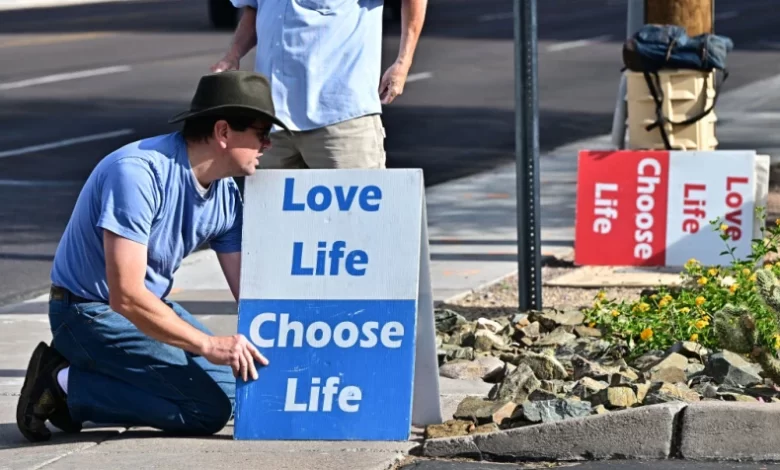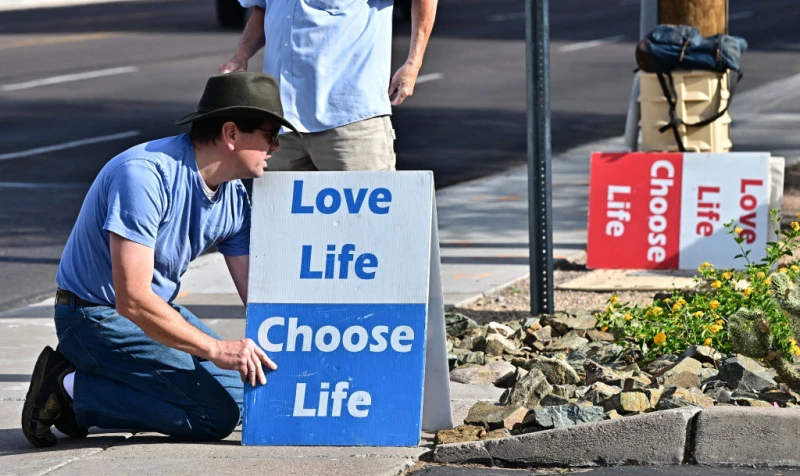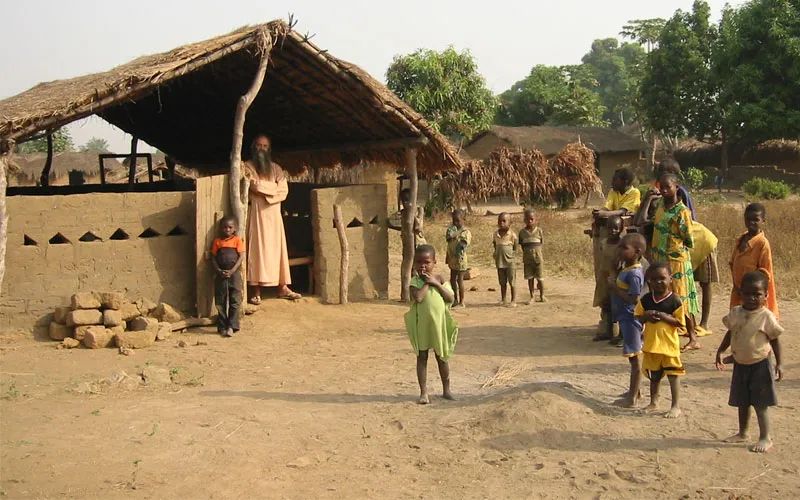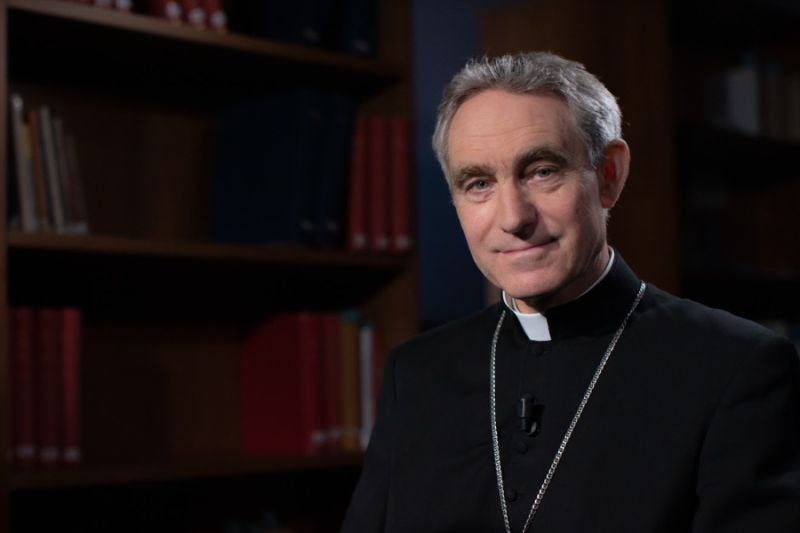CDC: Abortions declined slightly following reversal of Roe v. Wade

 Pro-life activist Matthew Engelthaler places signs in front of Camelback Family Planning, an abortion clinic in Phoenix, on April 18, 2024. / Credit: FREDERIC J. BROWN/AFP via Getty Images
Pro-life activist Matthew Engelthaler places signs in front of Camelback Family Planning, an abortion clinic in Phoenix, on April 18, 2024. / Credit: FREDERIC J. BROWN/AFP via Getty Images CNA Staff, Dec 5, 2024 / 15:40 pm (CNA).
Here is a roundup of the latest pro-life and abortion-related policy developments in the United States.
CDC: Abortions declined slightly following reversal of Roe v. Wade
Abortions decreased by 2% from 2021 to 2022 — the year Roe v. Wade was overturned — according to the latest data from the Centers for Disease Control and Prevention. There were a recorded 622,000 abortions in 2021 from 46 reporting states and Washington, D.C., dropping to 609,000 in 2022, according to the report.
The CDC compiles data that is voluntarily reported by states’ central health agencies. The 2022 report includes 46 states as well as Washington, D.C., and New York City. California, Maryland, New Hampshire, and New Jersey did not provide data for the 2022 report.
According to the report, the abortion rate — the number of abortions per 1,000 women in a population — declined by 3%. The abortion ratio — the relative number of pregnancies that end in abortion compared with live birth — also declined slightly, by 2%.
The report found that almost 4 out of 5 abortions were performed at or before nine weeks’ gestation, while about 6% of abortions were between 14 and 20 weeks’ gestation. About 92% of abortions happened at or before 13 weeks of gestation.
The CDC found that more than 70% of abortions were chemical abortions. The high percentage of chemical abortions is similar to the CDC’s report from 2021, though chemical abortions have increased markedly in past decades. Missouri had a low rate of abortions, at 0.1 abortions per 1,000 women aged 15–44, while New Mexico had 28.8 abortions per 1,000 women.
In 2022, women in their 20s accounted for more than half of abortions, according to reporting areas. Black women accounted for the highest percentage of abortions according to reported ethnicity data, at almost 40%, while white women accounted for the second-highest percentage, at almost 32%. Nearly 90% of women who had abortions were unmarried.
Pro-life hero remembered
Monsignor Philip Reilly (1934–2024), a major figure in shaping the modern pro-life movement, died on Nov. 30 at the age of 90. Reilly was one of the first organizers of the annual March for Life in Washington, D.C.
Testimonials in the wake of his death hailed Reilly as an “unsung hero,” a “spiritual father,” and a pro-life mentor. He mentored the founders of 40 Days for Life and the Pro-life Action League as well as the Franciscan Friars of the Renewal and the Sisters of Life.

Reilly was initially involved in political advocacy against abortion — even blocking entrances to abortion clinics — but ultimately took another approach, founding in 1989 the Helpers of God’s Precious Infants. Based in New York, the worldwide apostolate organizes prayer vigils outside of abortion clinics, pledging peaceful prayer for the salvation of souls. The vigils usually begin with an early morning Mass followed by a procession from the church to the local abortion clinic.
Reilly’s funeral Mass will be held on Monday, Dec. 9, at 11 a.m., and he will be buried at St. John Cemetery in Queens, New York. A more detailed account of his life and influence can be found in the book “Pro-Life Champion: The Untold Story of Monsignor Philip J. Reilly and His Helpers of God’s Precious Infants” by Frederick W. Marks.
For an archival EWTN interview with Reilly, see here.
Idaho’s abortion trafficking law partially revived
On Dec. 2, a federal appeals court ruled in favor of Idaho’s law against trafficking minors out of state to obtain abortions. The abortion trafficking law makes it illegal to harbor or transport a minor to get an out-of-state abortion without parental consent. The San Francisco-based 9th U.S. Circuit Court of Appeals partially approved the law but blocked a part of the law that prevented “recruiting” minors.
Two abortion rights groups challenged the law shortly after it passed in 2023, saying it violated the right to free speech and could prevent them from counseling minors seeking abortion. Circuit Judge M. Margaret McKeown ruled that “harboring” and “transporting” weren’t considered speech, and the law was partially approved.
A part of the law banning “recruiting” of minors to get out-of-state abortions was ruled as a violation of free speech. Abortions in Idaho are allowed only when the mother’s life is at risk, her physical health is substantially threatened, or if the pregnancy was from rape or incest. Abortion trafficking is punishable by two to five years in prison.
Arizona’s abortion law paused as lawsuit ensues
Arizona is temporarily pausing its 15-week abortion restriction pending an ongoing lawsuit that followed Arizona’s ballot measure that enshrined a right to abortion in the state constitution.
Arizona abortion providers filed the lawsuit on Tuesday in Maricopa County Superior Court. The abortion providers argued that the 15-week abortion law is unconstitutional. Arizona Attorney General Kris Mayes agreed that the state will not enforce the law as the lawsuit plays out, meaning that abortion providers will be able to perform abortions after 15 weeks of pregnancy.
Arizona’s ballot measure provided constitutionally for a “fundamental right to abortion.” The measure says the state cannot restrict abortion until the point of “viability” at approximately 24 weeks of pregnancy, unless it has a compelling reason and does so in the least restrictive way possible.





